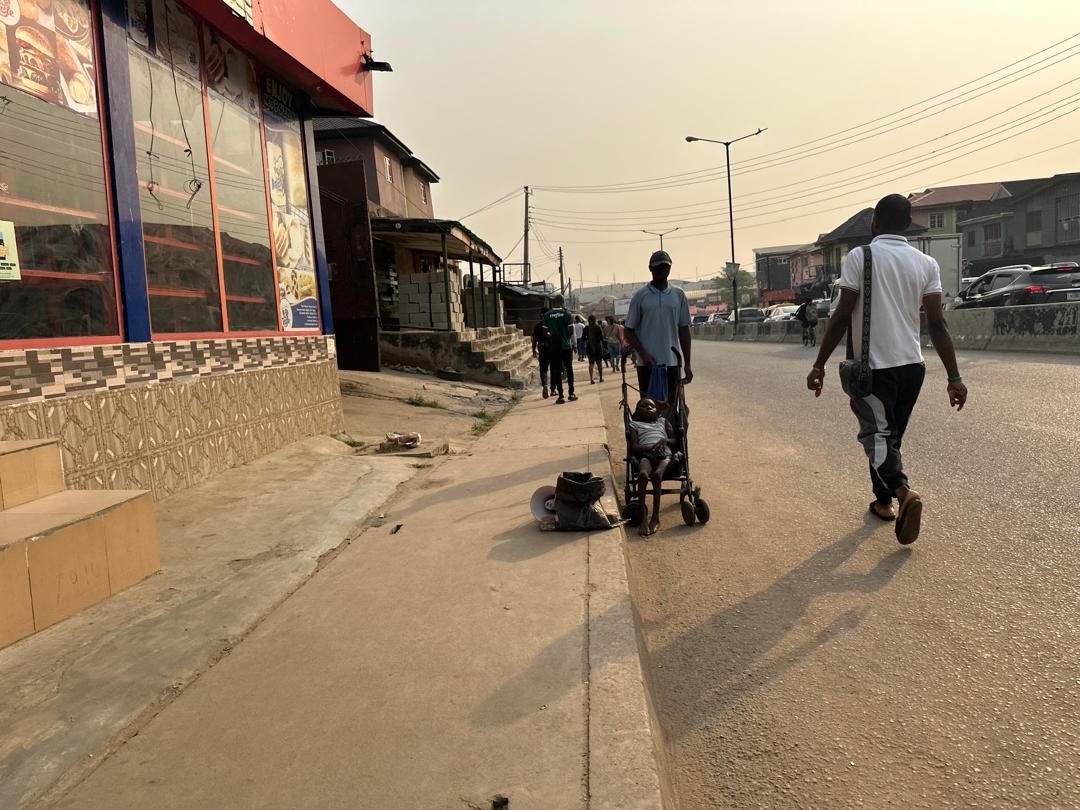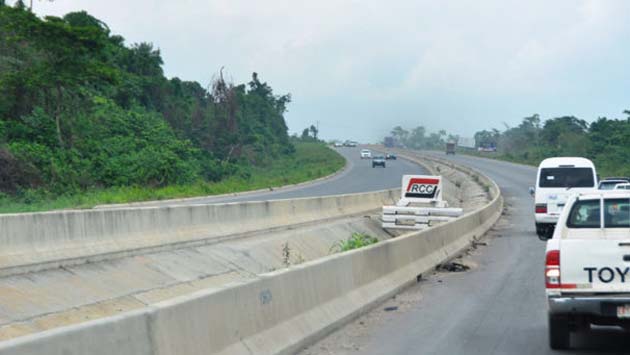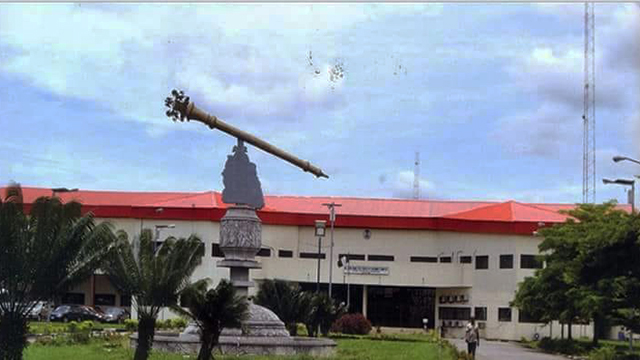 There has been an increasing and springing up of the number of people using sick children to beg for arms in Lagos State.
There has been an increasing and springing up of the number of people using sick children to beg for arms in Lagos State.
In what is described as a stain on the status of Lagos as a mega city, the perpetrators gather in public places around the state to beg for arms with the children either in diapers or half-clothed to reveal the affected areas.
The people either stay with the sick children and place bowls or sack bags before them or place them in corners with bowls placed before them while they stay away and watch from a distance.
The Guardian has noticed the growing trend in Ikotun, Ogba, Ajao-Estate, Ikeja, Lekki, Ajah and other parts of the state in the last two years with no arrest made or any human rights speaking about the situation or taking up their cases.
While these sick children groan in pain, giving food without protein, these guys are seen using expensive phones believed to be bought from the proceeds they get from using the sick children to beg.
Professional beggars have been exploiting sick children for ages. The success of such scams relies on a particular compassion in people towards children. When a child is sick, this particularly touches people’s hearts of the people who give arms without putting into consideration what the funds are used for.
Social media, such as Facebook, facilitate the following form of this scam. A photo of a sick child is posted online, commonly without knowledge of the relatives, accompanied by a heart-touching story and sometimes a request for donations, which are simply collected by the scammer. Often these photos become viral, so it becomes close to impossible to take them down.
Since Facebook has been slow to address the problem efficiently (relying on user takedown requests and reports only), several scam- and hoax-combatting websites have worked together to raise the awareness of social media providers regarding this issue.
There are also cases where parents exploit their children with a legitimate sickness. However, raised funds do not go towards medical treatment, but rather to cover their own needs. Patrons donate money to parents’ bank accounts, providing a convenient source of money. There have been several cases wherein parents posted several videos of a sick child and their wire-transfer information on a public channel.
In most cases, these children died, with no one asking about their whereabouts, while the perpetrators either buy or beg for other sick children to use for the business.
On April 26. 2023, the Lagos State Government restated that the ban on street begging, particularly the use of babies and children for alms on the streets of Lagos, is still in place.
While there have been claims of arrests of beggars on the streets of Lagos, people who use sick children to beg for arms are left to flourish on the streets.
The Guardian after observing the trend for a while, approached, Oyem Bright Goodluck who has been seen severally begging using different sick children in Canoe, Isolo Local Council Area of Lagos.
On that fateful morning, he was seen with a lady who refused to mention her name but asked that Goodluck should speak with The Guardian after she was told that an NGO is ready to give them the money to take care of the child.
Three weeks later, to avoid curiosity, The Guardian reached out to him via 09020475350 to ask about the amount needed for the little girl who was seen with him that day.
“She needs N350,000 for the treatment. Her mother is in Delta State and she’s my sister.
When asked about the amount raised so far and where he’s based, Goodluck who claimed to be working with an NGO that raises money to care for sick children said: “N100,000 has been raised out of the N350,000. I’m based in Egbeda.
When The Guardian reached out to the Lagos State Police Command spokesperson, Benjamin Hundeyin, he said: “We can’t act until we are contacted by the Lagos State Ministry of Youths and Social Development. We are out to arrest criminals, to prevent crimes but no one has approached us that they are using the children to scam the public.
When The Guardian reached out to the Permanent Secretary (PS), Lagos State Youth and Social Development, Zeinab Oke-Osanyintolu, she said the state has intensified efforts in bringing an end to begging in the state and that the state will look into the issue of individuals begging with sick children in the state and prosecute them.
“There is a law in Lagos State that forbids begging in any part of the state, and I think it was about two or three weeks ago that we started operation, putting off beggars from the street of Lagos. The first operation we had was in the Lekki axis, from Lekki Phase 1, right down to Aja and it is going to be an ongoing operation and we’ll be in collaboration with the Lagos State Tax force and DPOs of whichever areas that we’re going at any particular time, and the Ministry of Youth and Social Development. Recently, we had a stakeholders’ meeting with the Arewa leaders to inform their people to desist from begging on the roads of Lagos. It’s a work in progress.
When asked about those arrested, she said: “There is a law; Once they’ve been arrested, the Judiciary will take its course and we’ll go through the process. There’s a jail term or fine.
On how to ensure that they do come back to the same place, she said: “It’s a difficult question for me to answer, but like I said, the operation is ongoing. It’s not like we’re going to start and stop, so anybody that is caught in the same area, or a different area but you’ve been caught once, then you’ll go through the process again.
When asked if the agency takes responsibility for the treatment of sick children when seeing with people exploiting them, she said: “Yes. Lagos State has a Law; any child between the age of 0 and 12, is treated for free in any of the general hospitals in Lagos state, and also 60 and above are treated for free, and the Ministry of Youth and Social Development, one of our mandates is to ensure that vulnerable children or vulnerable adults are taken care of so, our first line of action would be to take the children, ensure that they are taken care of. If they have family members, we will reunite them with their family members, but the person who is using them to beg will face the wrath of the law.
“There is a law in Lagos State that forbids begging in any part of the state, and I think it was about two or three weeks ago that we actually started operation, putting off beggars from the street of Lagos. The first operation we had was in the Lekki axis, from Lekki Phase 1, right down to Aja and it is going to be an ongoing operation and we’ll be in collaboration with the Lagos State Tax force and DPOs of whichever areas that we’re going at any particular time, and the Ministry of Youth and Social Development. Recently, we had a stakeholders’ meeting with the Arewa leaders to inform their people to desist from begging on the roads of Lagos. It’s a work in progress.
When asked about those arrested, she said: “There is a law; Once they’ve been arrested, the Judiciary will take its course and we’ll go through the process. There’s a jail term or fine.
On how to ensure that they do come back to the same place, she said: “It’s a difficult question for me to answer, but like I said, the operation is ongoing. It’s not like we’re going to start and stop, so anybody that is caught in the same area, or in different area but you’ve been caught once, then you’ll go through the process again.
When asked if the agency take responsibility for the treatment of sick children when seeing with people exploiting them, she said: “Yes. Lagos State has a Law; any child between the age of 0 and 12, is treated for free in any of the general hospitals in Lagos state, and also 60 and above are treated for free, and the Ministry of Youth and Social Development, one of our mandates is to ensure that vulnerable children or vulnerable adults are taken care of so, our first line of action would be to take the children, ensure that they are taken care of. If they have family members, we will reunite them with their family members, but the person that is using them to beg, will face the wrath of the law.






